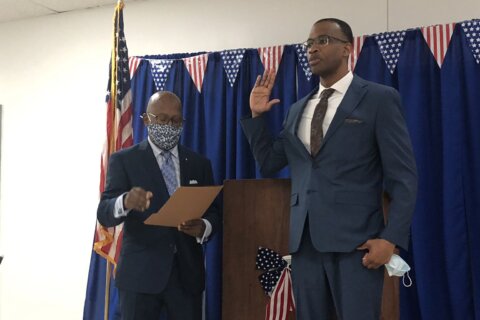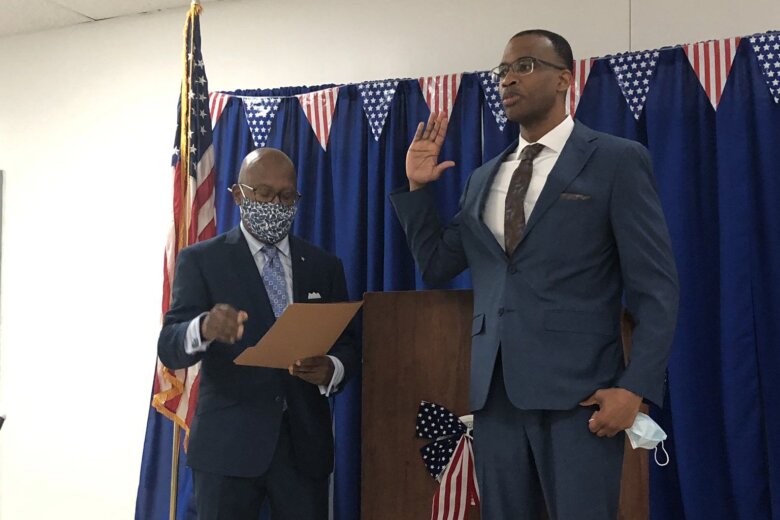
The D.C. Council voted Tuesday to appoint Joel Castón to its criminal sentencing commission, almost a month after debate about his appointment kept the council at a standstill.
Castón will be one of 12 voting members on the sentencing commission, which helps shape “fair and consistent” sentencing guidelines for judges in D.C. courts, according to its website.
He will be the first member to have actually served time in prison.
Castón was convicted of murder at 18 and served 27 years in prison before undergoing what his supporters called a “remarkable transformation fueled by faith and education” and was paroled in 2021. Before he was released, he became the first incarcerated person to win elected office in the District with a seat on an Advisory Neighborhood Commission in Ward 7.
Council Chairman Phil Mendelson defended his nomination of Castón last month saying that having former convicts on such panels is not unusual and in line with how other states are conducting their own commissions with this new and valuable perspective. Mendelson added that the other members of the commission in fact asked him to name a former convict to sit on the panel.
The chairman said Tuesday that he recommended Castón for the position specifically because of his “personal experience with the criminal justice system, demonstrated interest in the advocacy, interest in an advocacy related to criminal justice policy and because of the commission’s expressed desire to include the voice and perspective of a returning citizen on the commission.”
Council member Brooke Pinto supported the nomination, adding including a returning citizen on the commission would be “valuable.”
“These perspectives are also very important, as our sentencing commission really does play a crucial role in guiding the courts with the sentencing of crimes committed in our communities,” she said. “I believe a diversity of perspectives is very important.”
There had been pushback from U.S. Attorney for D.C. Matthew Graves who, in a letter to the council in January, voiced concern over Castón’s connection to the criminal justice system and lack of expertise on sentencing matters. He suggested having a representative from the District’s police force that would be able to give a better perspective on D.C.’s crime crisis.
Graves blamed current sentencing guidelines for creating “a revolving door” for those arrested and prosecuted, claiming Castón would work to further reduce incarcerations.
Advocates in support of Castón’s nomination disagreed with Graves. Kara Gotsch, acting executive director with The Sentencing Project, called the attorney “unreasonable” for saying that Castón’s “experience has no relevance in sentencing matters” in a news release.
Gotsch said in an updated statement that she applauded the council for “ensuring that this important population has a voice” on the commission.
“The inclusion of a formerly incarcerated individual, who has experienced the criminal legal system firsthand, will strengthen the DC Sentencing Commission,” she wrote. “Sentencing commissions should reflect the diverse populations they serve, including returning citizens.”
Get breaking news and daily headlines delivered to your email inbox by signing up here.
© 2024 WTOP. All Rights Reserved. This website is not intended for users located within the European Economic Area.









